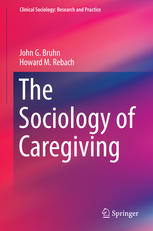

Most ebook files are in PDF format, so you can easily read them using various software such as Foxit Reader or directly on the Google Chrome browser.
Some ebook files are released by publishers in other formats such as .awz, .mobi, .epub, .fb2, etc. You may need to install specific software to read these formats on mobile/PC, such as Calibre.
Please read the tutorial at this link: https://ebookbell.com/faq
We offer FREE conversion to the popular formats you request; however, this may take some time. Therefore, right after payment, please email us, and we will try to provide the service as quickly as possible.
For some exceptional file formats or broken links (if any), please refrain from opening any disputes. Instead, email us first, and we will try to assist within a maximum of 6 hours.
EbookBell Team

4.4
32 reviewsThis volume conceptualizes caregiving as an emerging sociological issue involving complex and fluctuating roles. The authors contend that caregiving must be considered in the context of the life span with needs that vary according to age, developmental levels, mental health needs and physical health demands of both caregivers and care recipients. As the nature and functions of caregiving evolve it has become a critical and salient issue in the lives of individuals in all demographic, socioeconomic and ethnic categories. This volume frames caregiving as a sociological issue and addresses a number of central concerns, such as:
- Caregiving is a life span experience associated with aging and the roles of spouses and adult children.
- Caregiving involves a complex of social system variables that influence the social support and services to caregivers and care recipients.
- The nature of the relationship among family caregivers, professional caregivers and the care recipient are embedded in their interaction and dynamics influenced by the internal and external variables that inhibit or facilitate the care situation.
- How can caregiving be integrated with a public health agenda?
- What disparities or inequalities exist in caregiving and what are the barriers that sustain them?
- What community-based interventions need to be developed to improve caregiving?